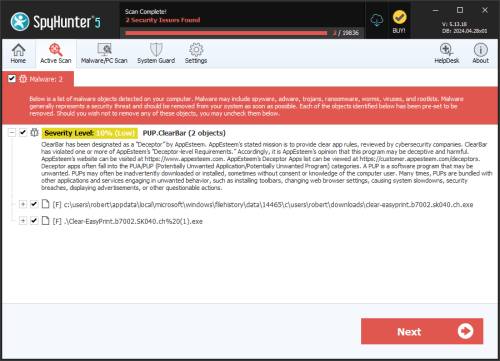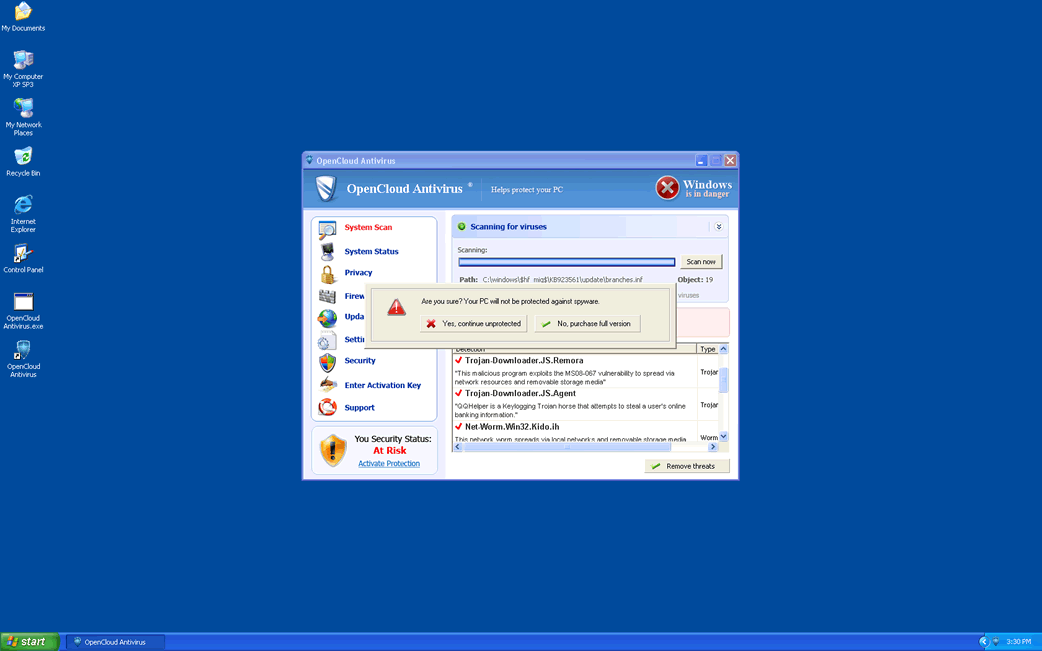Myxioslive.com
Threat Scorecard
EnigmaSoft Threat Scorecard
EnigmaSoft Threat Scorecards are assessment reports for different malware threats which have been collected and analyzed by our research team. EnigmaSoft Threat Scorecards evaluate and rank threats using several metrics including real-world and potential risk factors, trends, frequency, prevalence, and persistence. EnigmaSoft Threat Scorecards are updated regularly based on our research data and metrics and are useful for a wide range of computer users, from end users seeking solutions to remove malware from their systems to security experts analyzing threats.
EnigmaSoft Threat Scorecards display a variety of useful information, including:
Ranking: The ranking of a particular threat in EnigmaSoft’s Threat Database.
Severity Level: The determined severity level of an object, represented numerically, based on our risk modeling process and research, as explained in our Threat Assessment Criteria.
Infected Computers: The number of confirmed and suspected cases of a particular threat detected on infected computers as reported by SpyHunter.
See also Threat Assessment Criteria.
| Ranking: | 5,398 |
| Threat Level: | 20 % (Normal) |
| Infected Computers: | 68 |
| First Seen: | May 8, 2024 |
| Last Seen: | May 14, 2024 |
| OS(es) Affected: | Windows |
Cybersecurity researchers came across the Myxioslive.com Web page during an investigation into suspicious websites. This particular site operates as a rogue Web page, promoting browser notification spam and frequently redirecting users to other potentially untrustworthy or dubious sites. Typically, users land on pages like Myxioslive.com through redirects initiated by websites that employ rogue advertising networks.
Table of Contents
Myxioslive.com Greets Visitors with Misleading and Clickbait Messages
The content encountered on rogue sites can vary depending on factors such as the visitor's IP address or geolocation.
During their investigation of Myxioslive.com, experts encountered a Web page featuring an image of a purple robot alongside text instructing users to 'Click Allow if you are not a robot.' Contrary to typical CAPTCHA verification, clicking this button does not confirm human identity but instead grants permission for Myxioslive.com to send browser notifications.
Rogue websites leverage these notifications to conduct intrusive advertising campaigns. These advertisements often promote online tactics, unreliable or hazardous software and even malware. Consequently, users visiting sites like Myxioslive.com may be exposed to system infections, serious privacy breaches, financial losses and identity theft.
Warnings Signs that You might be Dealing with a Fake CAPTCHA Check
Recognizing fake CAPTCHA checks is crucial in identifying potentially fraudulent websites. Several typical warning signs that users might be dealing with a fake CAPTCHA are:
- Minimal or Absent Verification Process: Legitimate CAPTCHA checks typically involve some form of interactive challenge to confirm human identity, such as identifying objects in images or solving puzzles. If the supposed CAPTCHA verification process consists of a simple click on a button labeled 'I'm not a robot' without any further interaction, it could be a fake.
- Immediate Redirect or Action Upon Clicking: Fake CAPTCHA prompts often immediately trigger actions upon clicking the verification button, such as granting browser notifications or initiating downloads. Legitimate CAPTCHAs usually require the completion of a task before any further action is taken.
- Unusual or Unrelated Content: Fake CAPTCHA screens may display strange or unrelated content alongside the verification prompt, such as unusual graphics, irrelevant text or misspellings. Legitimate CAPTCHAs are typically straightforward and professionally presented.
- Pressure Tactics or Urgency: Fake CAPTCHA prompts may use urgent language or pressure tactics to convince users to click the verification button quickly. Phrases like 'Click Allow to continue' or 'Verify now to access content' can be indicators of a deceptive prompt.
- Unexpected Browser Notifications or Pop-ups: After clicking a supposed CAPTCHA verification button, if users start receiving unexpected browser notifications or pop-ups promoting advertisements or questionable content, it is likely that the CAPTCHA was fake.
- No Verification Symbol or Branding: Legitimate CAPTCHA checks often include recognizable symbols or branding from established services like Google reCAPTCHA. If there are no such indicators or if the symbols appear altered or unfamiliar, it could indicate a fake CAPTCHA.
Overall, users should exercise caution and closely examine any CAPTCHA-like prompts encountered on websites. When in doubt, it's advisable to refrain from interacting with suspicious prompts and to use security software to protect against potential threats from deceptive websites.
URLs
Myxioslive.com may call the following URLs:
| myxioslive.com |


